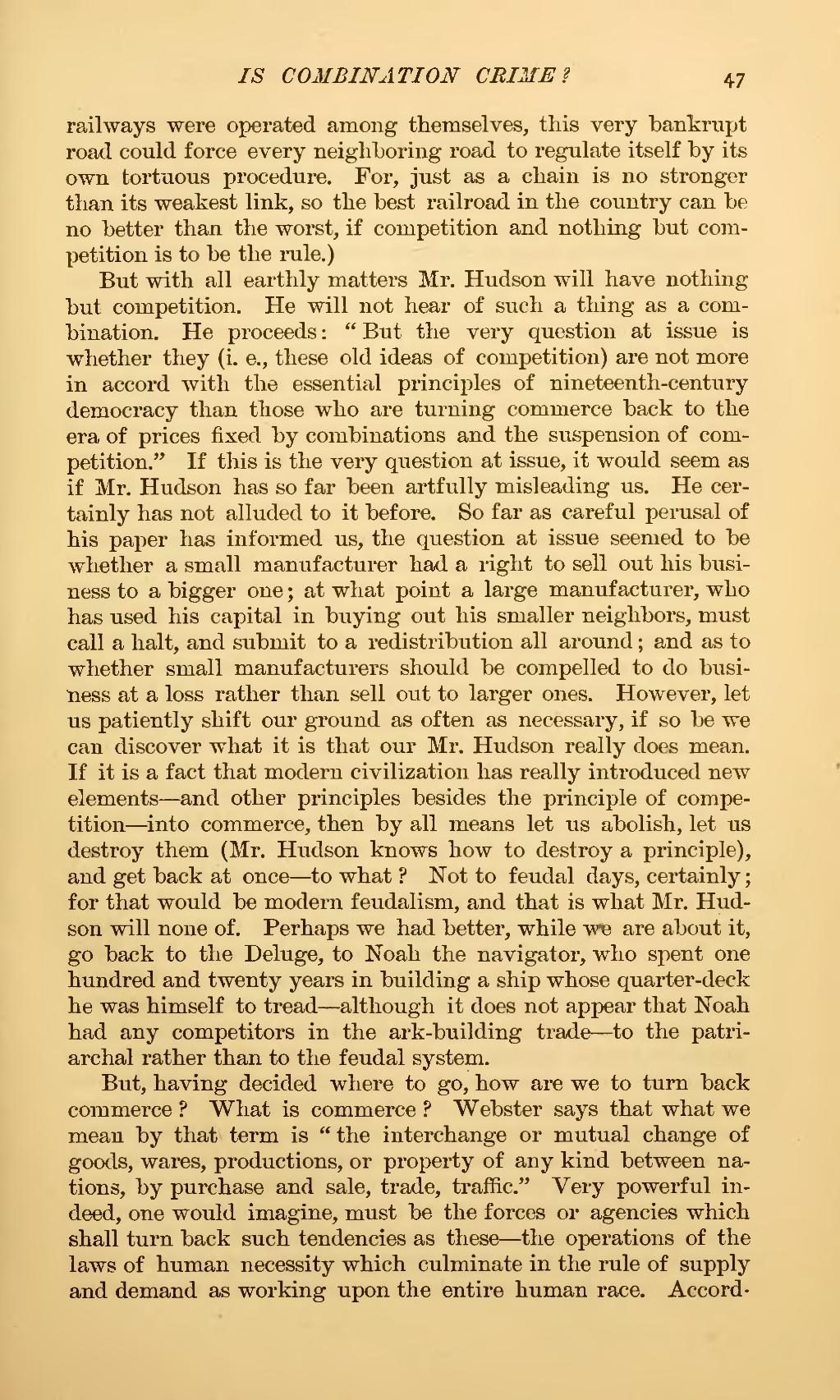railways were operated among themselves, this very bankrupt road could force every neighboring road to regulate itself by its own tortuous procedure. For, just as a chain is no stronger than its weakest link, so the best railroad in the country can be no better than the worst, if competition and nothing but competition is to be the rule.)
But with all earthly matters Mr. Hudson will have nothing but competition. He will not hear of such a thing as a combination. He proceeds: "But the very question at issue is whether they (i.e., these old ideas of competition) are not more in accord with the essential principles of nineteenth-century democracy than those who are turning commerce back to the era of prices fixed by combinations and the suspension of competition." If this is the very question at issue, it would seem as if Mr. Hudson has so far been artfully misleading us. He certainly has not alluded to it before. So far as careful perusal of his paper has informed us, the question at issue seemed to be whether a small manufacturer had a right to sell out his business to a bigger one; at what point a large manufacturer, who has used his capital in buying out his smaller neighbors, must call a halt, and submit to a redistribution all around; and as to whether small manufacturers should be compelled to do business at a loss rather than sell out to larger ones. However, let us patiently shift our ground as often as necessary, if so be we can discover w,hat it is that our Mr. Hudson really does mean. If it is a fact that modern civilization has really introduced new elements—and other principles besides the principle of competition—into commerce, then by all means let us abolish, let us destroy them (Mr. Hudson knows how to destroy a principle), and get back at once—to what? Not to feudal days, certainly; for that would be modern feudalism, and that is what Mr. Hudson will none of. Perhaps we had better, while we are about it, go back to the Deluge, to Noah the navigator, who spent one hundred and twenty years in building a ship whose quarter-deck he was himself to tread—although it does not appear that Noah had any competitors in the ark-building trade—to the patriarchal rather than to the feudal system.
But, having decided where to go, how are we to turn back commerce? What is commerce? Webster says that what we mean by that term is "the interchange or mutual change of goods, wares, productions, or property of any kind between nations, by purchase and sale, trade, traffic." Very powerful indeed, one would imagine, must be the forces or agencies which shall turn back such tendencies as these—the operations of the laws of human necessity which culminate in the rule of supply and demand as working upon the entire human race. Accord-

